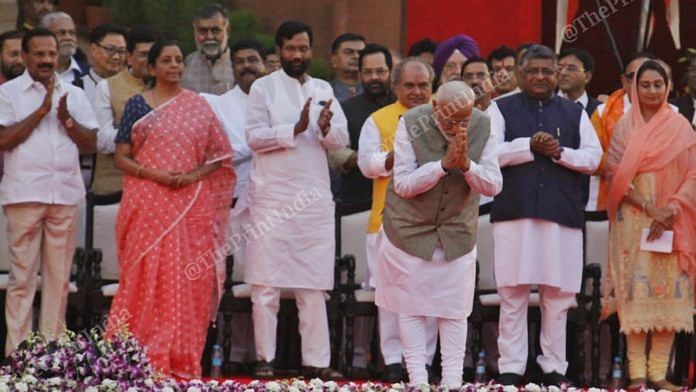Strong State, Strong Society
Gurcharan Das | Bestselling author and former CEO of Procter and Gamble India
Times of India
While everyone fears the return of an authoritarian state with the new Modi government, for Gurcharan Das, the real issue is a weak state. Das writes that India’s primary problem lies in getting states to do work since “real power” resides with state chief ministers who are the “real rulers of India”. “The lesson from history is that we need a strong state to get things done and we need a strong society to make the state accountable,” Das writes. He is full of praise for China where the government has delivered on health, education and welfare for the needy. “Everyone knows what is to be done; the real question is, how to do it,” he writes.
Bhatia calls on the new Modi government to send back to the drafting table, a number of controversial bills that lapsed. He details the trajectory of the Transgender Bill, the Surrogacy Bill and the Trafficking Bill and concludes that in each case, the impacted communities were not consulted enough and “the result was a set of drafts that, far from protecting (their) rights, actively harmed them”. He also lists the National Register of Citizenship and the Citizenship (Amendment Bill) and hopes the “lacunae and shortcomings’’ are remedied by the new government.
Muslims need access to institutions
Gilles Verniers | Assistant Professor of Political Science, Ashoka University
Hindustan Times
Verniers argues that the under-representation of Muslims in the newly-elected Parliament is not just “a consequence of BJP’s rise” but also “crippling factionalism among Muslim elites, and a strong party bias that favours upper-caste Muslims candidates over the larger population of backward Muslims” for the problem. He traces Muslim representation and finds they have been under-represented since 1947. This trend has continued to the present, Verniers writes, pointing out that the nomination of Muslim candidates has fallen from 10 per cent in 2014 to 8 per cent in 2019 – and the drop in candidates comes not from Congress but regional parties.
A problem of measurement
Shamika Ravi | Senior Fellow, Brookings India and member, Economic Advisory Council to the Prime Minister
The Indian Express
Ravi wades into the ongoing debate surrounding unemployment, saying, “there is neither credible evidence of a jobs crisis in India, nor of its absence”. She states that before the crisis can be accurately measured, a “robust statistical system” needed to be put in place. She makes three suggestions to measure unemployment that include “credible discussions on changes of unemployment”, addressing non-sampling errors after “sampling errors” are addressed and third, a need for state governments to come up with local measures of unemployment.
A near-term policy agenda for the new government
Sajjid Chinoy | Chief India Economist at J P Morgan
Business Standard
Chinoy issues a warning: “underlying growth momentum has slowed meaningfully as consumption — the main engine driving growth — has exhausted itself”. He argues that any fiscal stimulus will be counter-productive but suggests “fixing the plumbing” in three areas that should constitute the near-term policy agenda. The NBFC sector is facing a solvency problem and undertaking an asset quality review is the first. Next, Chinoy writes that the government should reiterate its fiscal deficit target of 3.4 per cent but do so by “credibly budgeting revenues and expenditure”. Tackling agrarian distress by addressing adverse terms of trade from low food prices should be the third priority, writes Chinoy.
A-Team for the second half
Surendra Kumar | Former ambassador and founding President, Indo-American Friendship Association
Economic Times
Kumar lauds the new Modi cabinet for its inclusion of new names such as Amit Shah and S.Jaishankar while continuing with ministers who delivered in the first term like Nitin Gadkari, Nirmala Sitharaman, Piyush Goyal and Ravi Shankar Prasad. He says the choice of the council of ministers indicates that Modi means business although he points out that it’s too early to say if this is going to be “Modi 2.0’s dream team”. On the government’s agenda, Kumar says Modi must deliver in full measure after people voted him back with a resounding mandate — team formation has been only his ‘opening gambit’.



